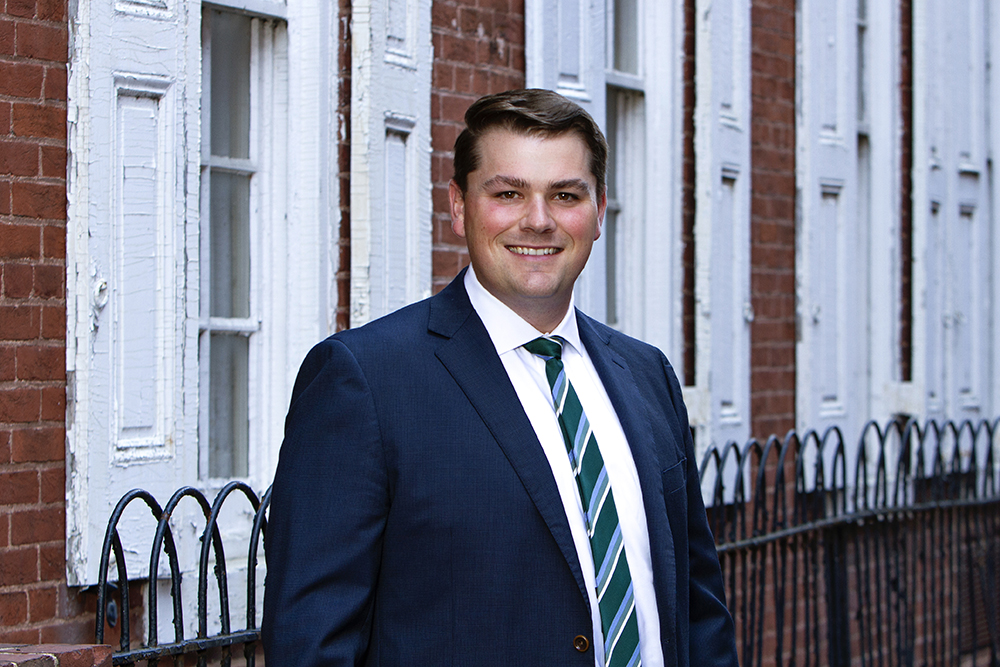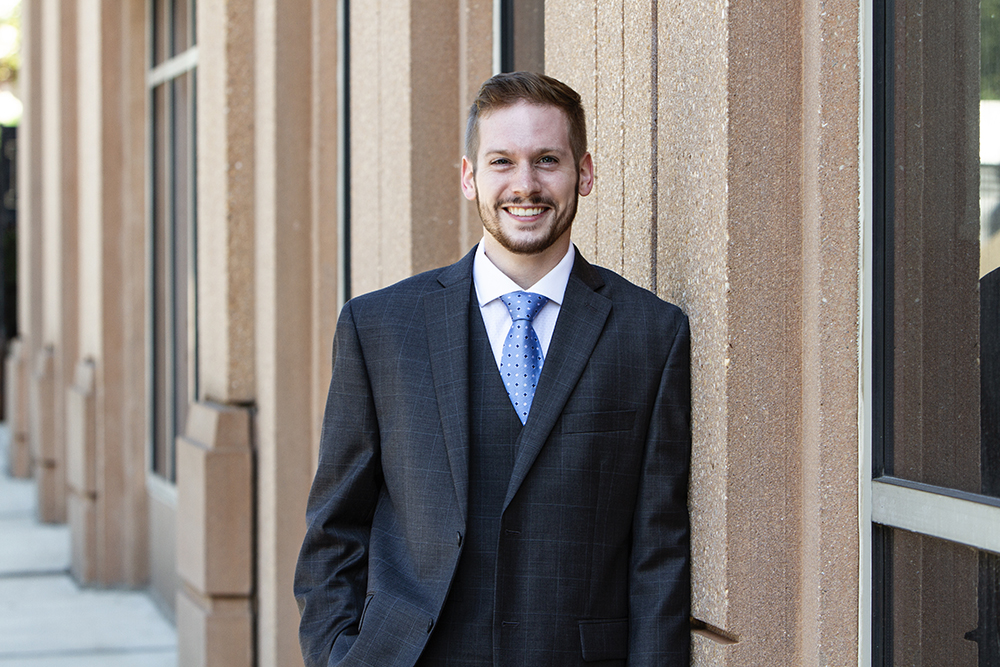Taxing the Rain? Two Recent Commonwealth Court Decisions Muddy the Waters on Stormwater Fees
February 9, 2023
Publications
Reprinted with permission from the February 7, 2023 edition of The Legal Intelligencer © 2023 ALM Media Properties, LLC. Further duplication without permission is prohibited. All rights reserved.
by Ryan Gonder & Errin McCaulley
A little over a year ago, the Commonwealth Court in an unreported memorandum decision, issued a decision in Appeal of Best Homes DDJ, LLC, 239-40 C.D. 2020 (Pa. Cmwlth. Ct. Dec. 23, 2021) (“Best Homes”), where the court affirmed the trial court’s finding that the stormwater charge in the City of Chester was not a tax.
The court’s reasoning for that decision was because it found no record evidence that the collected stormwater charges for the City of Chester were unrelated to stormwater and that there was no evidence showing that there was not a discrete benefit to appellants or that the value to appellants was not reasonably proportional to the amount of the fees. Specifically, the court found the Authority’s expert’s testimony persuasive in which the expert opined that the City of Chester’s user fees were reasonably related to the services or projects that the Authority will produce and execute and that the user fees were calculated by conducting a cost of service projection based on a five-year projection budget and a capital improvement program. It is worth noting, however, the court’s decision in Best Homes was not particularly detailed on this specific issue as that case also dealt with other significant legal issues.
On January 4, 2023, the Commonwealth Court again took up the question of whether a stormwater charge imposed by a municipality constitutes a fee for service or a tax. But, unlike in the Best Homes decision, the court, in Borough of West Chester v. PASSHE and West Chester Univ. of Pennsylvania, 260 M.D. 2018 (Pa. Cmwlth. Ct. Jan. 4, 2023) (“West Chester”), ruled in favor of the Pennsylvania State System of Higher Education (“PASSHE”) and West Chester University of Pennsylvania of PASSHE (“WCU”) (jointly, “Respondents”), and held that the stormwater charge established by West Chester Borough (the “Borough”) related to stormwater management (“Stormwater Charge”) was a tax, from which Respondents are immune.
Like the decision in Best Homes, this decision, which was authored by Judge Christine Fizzano Cannon on behalf of the court en banc, was an unreported memorandum opinion – and therefore lacks precedential effect. However, the case may still be cited for its persuasive value, and is a worthwhile read for any property owner, municipal official or solicitor in a jurisdiction where a stormwater charge has been previously imposed. In this article, we review the highlights of Judge Fizzano Cannon’s decision.
The court in its decision considered the following two questions:
- Whether the Borough’s Stormwater Charge constitutes a tax or fee?
- If the Stormwater Charge is determined to be a tax, is it a special assessment?
In reaching its decision, the court reviewed prior decisions that outlined the distinguishing characteristics of taxes and fees. The court reasoned that a tax is “imposed by a legislature upon many, or all citizens[. It] raises money, [is] contributed to a general fund, and [is] spent for the benefit of the entire community.” (Opinion, at 12; internal citations omitted). “A tax is an ‘enforced contribution to provide for the support of government.’” Id. A fee or charge, however, “is imposed by a state or municipality not in its capacity as a sovereign but rather under a voluntary, contractual relationship.” Id. “A ‘fee’ is paid to a public agency for bestowing a benefit which is not shared by the general members of the community and is paid by choice.” Id. In other words, “[t]axation is a legislative function, and [a legislature] . . . may act arbitrarily and disregard benefits bestowed by [a g]overnment on a taxpayer and go solely on ability to pay.” Id. “A fee, however, is incident to a voluntary act.” Id. at 12-13. For example, “a request that a public agency permit an applicant to practice law or medicine or construct a house or run a broadcast station” have been considered fees rather than taxes. Id. at 13. “In addition, a charge is a tax rather than a fee for service if it is not reasonably proportional to the value or benefit received in return for its payment.” Id. “[C]harges ‘imposed without due regard to that requirement . . . [are], in legal effect, undoubtedly a tax.’” Id.
Ultimately, the court found the Borough’s Stormwater Charge to be a tax and not a fee. In reaching its decision, the court found that the following factors weighed in favor of the Respondents:
- Testimony from the Borough’s Manager indicated that property owners subject to the Stormwater Charge receive the same generalized benefits as owners of undeveloped property and the community at large. (Opinion, at 14).
- Respondent WCU operates its own municipal separate storm sewer system (“MS4”) system, which similarly benefits property owners and citizens both within and outside the campus. Id.
- The Borough failed to produce evidence of any “discrete benefits” received by Respondents by paying the Stormwater Charge. Id. Rather, evidence presented by the Borough consists only of a projection of the costs and expenses Respondent WCU would allegedly incur if the Borough’s Stormwater System did not exist.
- No direct measure of Respondents’ purported use of the Stormwater System exists. at 14-15. The court agreed with the Respondents’ argument that “the impervious surface area of a property does not correlate to the level of benefit accorded the owner of that property.” Id. at 15.
- Citing to a prior decision addressing the question of whether stormwater charges constitute a tax or fee, the court was persuaded that “flood control is a public benefit, and charges to pay for that benefit are typically viewed as taxes.” Id. at 16 (quoting Dekalb Cnty., Georgia v. United States, 108 Fed. Cl. 681, 701-03 (Fed. Cl. 2013)). The court elaborated further, finding that the Borough’s Stormwater Charge provides benefits to the “‘general public,’” rather than “‘individualized services provided to particular customers.’” at 17.
- The Borough’s Stormwater Charge, due to its reliance on impervious area as a surrogate for measuring purported service, was calculated based on a property’s “anticipated burden” on the Stormwater System, rather than the benefits conferred upon the property owner paying the charge. (quoting Dekalb, 108 Fed. Cl. at 703).
- Although the Borough provides for an appeal process which owners of developed properties may apply for credits against Stormwater Charges under certain circumstances, the Borough failed to establish that “‘voluntary, contractual relationship[s]’” exist between the Borough and the property owners subject to the Stormwater Charge or that such property owners “pay the charge ‘by choice.’” Id. at 17-18.
Turning to the question of whether the Stormwater Charge constitutes a special assessment, the court reasoned that a special assessment is generally “imposed only once as to any given improvement,” but that the Borough’s Stormwater Charge “subsidizes an ongoing series of evolving tasks and projects” and therefore does not constitute a special assessment. Id. at 19.
Finally, the court referenced case law that notes that “Pennsylvania Courts ‘strictly construe statutes purporting to permit taxation of Commonwealth property, and such a grant may not be found by implication.’” Id. at 19-20 (quoting Delaware Cnty. Solid Waste Auth., 626 A.3d 528, 531 (Pa. 1993)).
The court’s decision in West Chester stands in stark contrast to its decision in Best Homes, where the stormwater fee was determined to not be a tax. Whether you are contemplating the impact of this decision as a municipality, a tax-exempt property owner, or a recently created stormwater authority, you are in the same “boat” as many others across the Commonwealth. If you find yourself in the proverbial “boat,” it is important to remember that thecourt did not rule, as a matter of law, that all stormwater fees are taxes. According to the court’s decision, for every stormwater fee, the particular facts matter, and therefore the factual record developed in any proceeding may prove dispositive. For future proceedings, it seems likely that courts will be forced to weigh the persuasiveness of the court’s opposite decisions in Best Homes and West Chester.
With an appeal deadline of February 3, 2023, we fully expect the decision to be appealed to the Pennsylvania Supreme Court by the time this article is published. If the Pennsylvania Supreme Court elects to hear the appeal, it could go further than the Commonwealth Court and look at the issues as a matter of law, or base its decision on the facts of the case, as did the Commonwealth Court.
In the interim, we expect further litigation regarding the imposition of stormwater fees by municipalities and municipal authorities in Pennsylvania. In any proceeding regarding the legality of a particular fee structure, practitioners should carefully review the court’s decisions in Best Homes and West Chester, and determine which of the cases appear to match up best with the particular facts of a proceeding.



